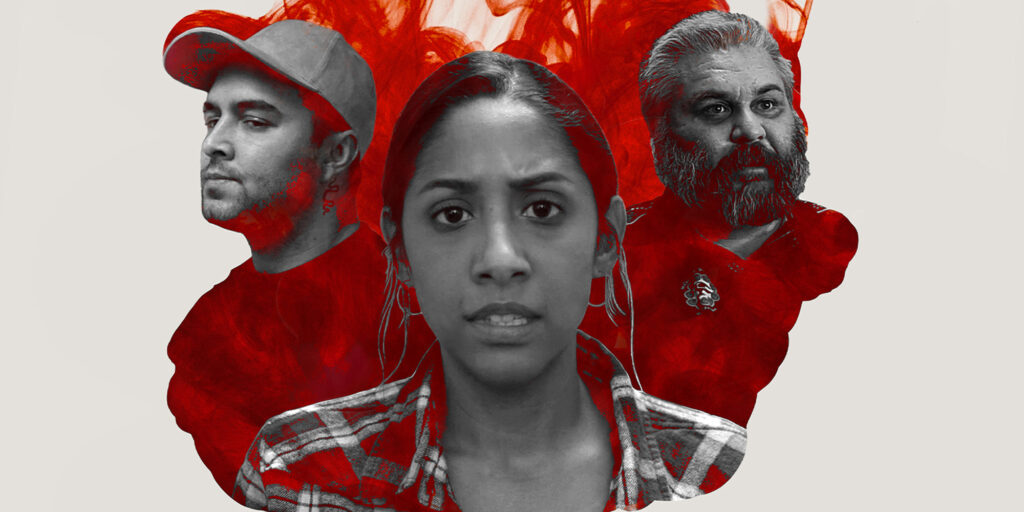October selections from our Library
There is clear evidence that Aboriginal and Torres Strait Islander Peoples are over represented in many areas of chronic health conditions (including hepatitis) and that there are huge disparities in the social determinants that influence health outcomes.
It seems logical to give the relevant community a valid voice – to seek advice and information from the people at the centre of this situation and for there to be self determination in the formation and running of initiatives.
Here are some of the resources that give an overview of the health status of Aboriginal and Torres Strait Islander peoples and some of the social determinants that have had an impact on overall health status, as well as a selection of successful initiatives.
Overview of Aboriginal and Torres Strait Islander health status 2022
Australian Indigenous HealthInfoNet, Perth, 2023. 103p. report and PPT slides.
A comprehensive profile of the current health status of Aboriginal and Torres Strait Islander people including information about the social and cultural context of Aboriginal and Torres Strait Islander health, social determinants, the structure of the population, and measures of population health.
bit.ly/ATSIhealthstatus2022

Liver disease in Aboriginal and Torres Strait Islander People
Y. Tashkent, et al. Jn. of the Australian Indigenous HealthInfoNet Vol. 3.4. 2022. 28p.
Liver disease has been estimated to be the third leading cause of the mortality gap between Aboriginal and Torres Strait Islander and non-Indigenous people due to chronic disease. Recent revolutions in the detection and treatment of liver disease make efforts to improve access to treatment and outcomes an urgent priority for Aboriginal and Torres Strait Islander people.
bit.ly/ATSILiverdisease
Cultural determinants of Cracks in the ice webinar: working with Aboriginal and Torres Strait Islander Communities to address methamphetamine use and eliminate sexually transmissible infections
Matilda Centre for Research in Mental Health and Substance Use, Sydney, 2022. 57 minute webinar.
This webinar discusses some of the important features of working appropriately with Aboriginal and Torres Strait Islander communities, and – while research alone is never enough – some of the ways these projects are seeking to make a positive difference by using a lens that takes into account the broader context of Aboriginal and Torres Strait Islander determinants of health.
bit.ly/ATSI_ice
Aboriginal and Torres Strait Islander health roundtable
Lowitja Institute, Melbourne, 2014. Report and presentations.
The aims of the roundtable were to clarify what the cultural determinants of Aboriginal and Torres Strait Islander health and to consider strategies that could assist in strengthening culture as a determinant of Aboriginal and Torres Strait Islander health. The overarching themes identified by the roundtable included the need to learn to work with Aboriginal and Torres Strait Islander peoples and nations to rebuild their resilience and cultural sustainability.
bit.ly/lowitjaroundtable

South Australian Aboriginal health promotion strategy 2022-2030: strengthening and promoting the cultural determinants of health and wellbeing
Wellbeing SA, Adelaide, 2022. 28p. report
This inaugural strategy aims to support and strengthen the cultural determinants of health and wellbeing. For Aboriginal and Torres Strait Islander people, we know good health and wellbeing is more than good nutrition and exercise. Culture, and the ability to practice it, must be strong. Aboriginal people require a culturally appropriate health system, underpinned by policies, programs and services across all sectors, that supports all aspects of health and wellbeing holistically. The Strategy was developed in consultation with the South Australian Aboriginal community in seven regions.
bit.ly/ATSIwellbeing22
Better to know
Australian Federation of AIDS Organisations (AFAO and the Anwernekenhe National HIV Alliance (ANA), Sydney, 2022. Website.
A sexual health resource for Aboriginal and Torres Strait Islander people. It provides information about common sexually transmitted infections (STIs), what to do if you have an STI and where to get tested. It contains information that deals with both men’s and women’s business. Produced in partnership with Anwernekenhe National HIV Alliance (ANA), an Aboriginal and Torres Strait Islander community-based organisation.
bettertoknow.org.au
Viral: are you the cure?
Ilbijerri Theatre Company, Melbourne, 2022. 26minute film.
A short film made with mob for mob about navigating hepatitis C, created through an in-depth engagement process, including community workshops and yarning circles: “Ally and Kev live up in the flats. They’ve got their own little place, a brand new baby and dreams for the future. Life should be good but sometimes things don’t always go to plan. Meet Merv who hasn’t been feeling great lately, not for some years in fact. Years of tough luck, bad choices and hard living have finally caught up with him”.
bit.ly/viral_thecure

Deadly Liver Mob
University of NSW Centre for Social Research in Health, Sydney, 2021. Website
The aims of the Deadly Liver Mob program are to: raise awareness about hepatitis C, including transmission risk factors and treatment options, increase access to bloodborne virus and sexually transmissible infection testing and treatment by and for Aboriginal people, and provide a point of entry to other health services for Aboriginal people. This website contains information about how to adapt the model to suit local context.
deadlylivermob.org

Evaluation report: Young, Deadly, Free Project Evaluation – Phase 2
Sexual Health and Blood-Borne Virus Applied Research & Evaluation Network, Curtin University, Perth, 2020. 94p.
This successful project’s primary aim was to increase the uptake of sexual health screening in 15 remote and very remote communities. This was achieved through a multi-faceted design including a youth peer education program, a social marketing campaign, and the development and dissemination of a suite of 279 community education resources in collaboration with participating communities and project consortium members.
bit.ly/youngdeadlyfree_eval2
To view the entire collection of resources and information about Young Deadly Free go to youngdeadlyfree.org.au
